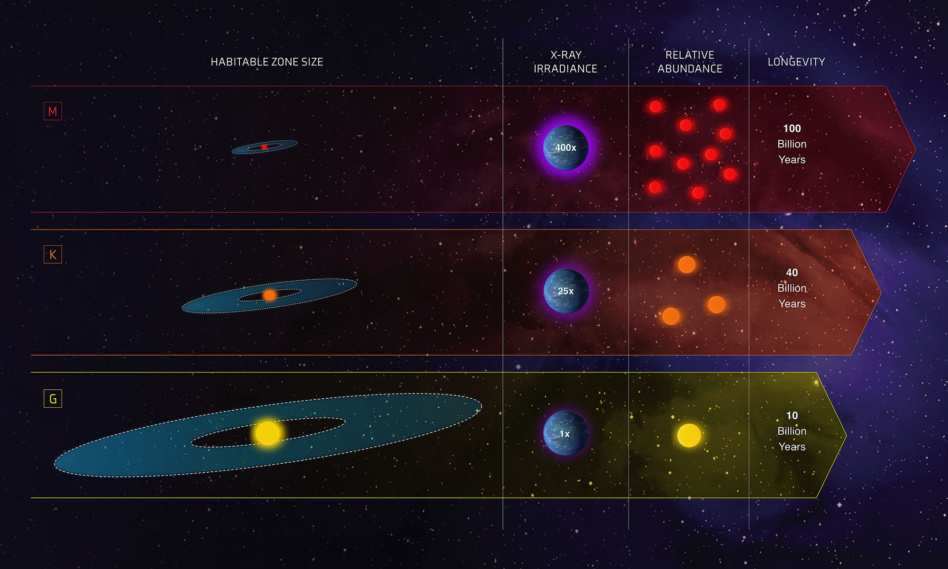Until recently, the driving philosophy in exoplanet research was that liquid water needed fairly specific conditions to exist and that water on planets that orbited too far from a star would necessarily be frozen.
Now, a decade-old theory with a new batch of research behind it is challenging that idea among planetary scientists. A study in the June edition of Nature Astronomy presents data suggesting distant, cold super-Earths with dense primordial atmospheres could have temperate climates for periods of 5–8 billion years, affording plenty of time for life to form. Breaking that down piece by piece:
- Super-Earth = a planet made of gas, rock, or a combination of both that’s 2x-10x the mass of our Earth.
- Primordial atmosphere = dense, fluffy atmospheres dominated by hydrogen and helium gas. The ideal atmospheric density for a planet of the study’s description would be between 100 and 1000 times as dense as our own atmosphere.
The density of the atmosphere and the hydrogen content are both important factors in whether these planets could remain warm. Since hydrogen is so light, a planet needs a lot of mass (and consequently, gravity) to keep it from escaping into space.
This research examines planets orbiting far from their stars, 1.5x–10x farther than Earth is from our Sun, depending on the size and heat of the star. Radiation from a star would also make hydrogen escape more quickly, hence the need for a wide orbit.
Habitable how?
These findings suggest that the frameworks we use to guess whether or not a planet might be habitable could use an update. When searching for worlds that could sustain life, exoplanet researchers use the concept of a “habitable zone.” A habitable zone = the band around a star where the surface temperature of an Earth-ish planet would be 0°C–100°C, and liquid water could exist.
The habitable zone theory really only applies to planets somewhat similar to our own. Based on these findings, astronomers may have reason to search for life on planets far different from the Earth we call home.
Hold your horses: These exciting findings open new avenues in the search for an answer to the age-old question of whether we’re alone. But, before we get all metaphysical and cosmic, mind the caveat that this data is theoretical. Moreover, no exoplanet fitting the parameters laid out in the study has actually been found.
So the search continues…




